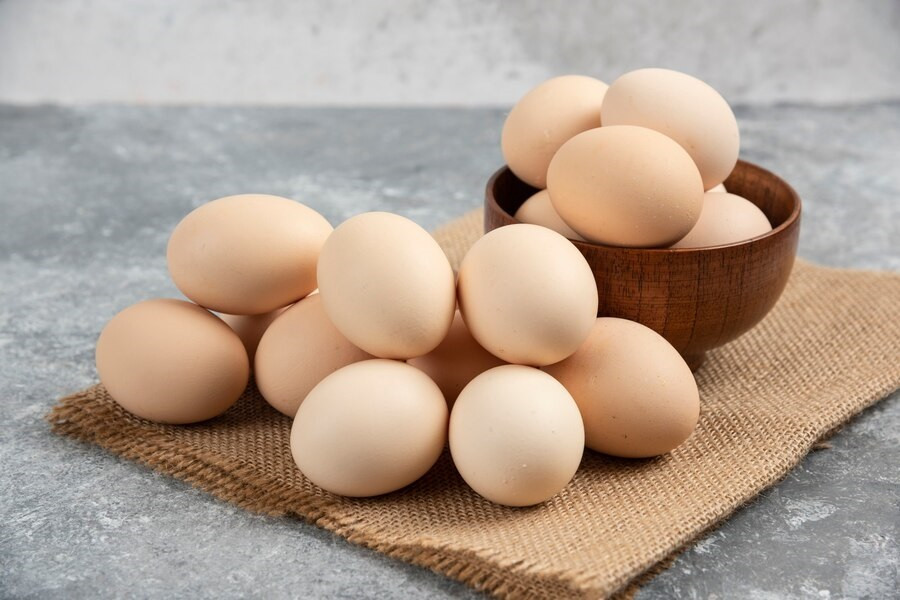Similar to vitamin B, choline is synthesized by the liver in limited amounts. Choline plays an essential role in the body. Choline can be derived from a variety of food sources, including meat, fish, nuts, seeds, vegetables, and eggs.
What are the important roles of choline in the body?
The important role of choline in the human body
According to experts, choline plays several important roles in the body, including:
Cell structures
Choline is essential for the synthesis of phospholipids, which are the primary components of cell membranes. Phospholipids are a type of fat that is essential for the structural integrity of cell membranes. This is necessary for the maintenance of the cell's shape, the protection of the internal environment, and the timely movement of substances in and out of the cell.
Transmit messages from cells
Choline also has a crucial role in the synthesis of molecules that serve as cell messengers. Choline produces acetylcholine, a neurotransmitter that facilitates communication among nerve cells. Acetylcholine is crucial for the transmission of nerve signals in both the brain and the body's nervous system.
Choline deficiency can inhibit the production of acetylcholine, which may impact cognitive function and cell communication.
Read more: Benefits Of Egg White For Body Health
Fat transport and metabolism
Choline is responsible for the production of substances that are essential for the liver's cholesterol clearance. Choline deficiency may disrupt the process of synthesizing this substance, leading to an accumulation of lipids and cholesterol in the liver.
Fatty liver is the accumulation of fatty tissue and cholesterol within the liver. This condition is frequently defined by severe fatigue, muscle weakness, involuntary weight loss, and dull pain in the upper right abdomen.
DNA formation
Choline, along with vitamin B12 and folate, contributes to the process of DNA formation. Its presence is essential for the production of phosphatidylcholine, a primary component of cell membranes that is also crucial for the formation of DNA.
A well-functioning nervous system
Choline is essential for the production of acetylcholine, a neurotransmitter that plays a critical role in the functioning of the nervous system. Acetylcholine is crucial for the regulation of attention, motivation, memory, learning processes, and the control of involuntary muscle movements.
Several medical conditions, including Alzheimer's disease, are related to acetylcholine deficiency.
How much is the recommended daily intake of choline?
The daily choline requirements of the body may vary depending on a person's age and health status. According to Healthline's report, the following provides details on the recommended daily choline requirements:
- Age 0–6 months: 125 mg per day
- Age 7–12 months: 150 mg per day
- Age 1-3 years: 200 mg per day
- Ages 4–8 years: 250 mg per day
- Ages 9–13 years: 375 mg per day
- Ages 14–19 years: 400 mg per day for girls and 550 mg per day for boys
- Adult women: 425 mg per day
- Adult men: 550 mg per day
- Pregnant women: 930 mg per day
- Breastfeeding mothers: 550 mg per day
Read more: Pregnancy Problems Due To Mothers Lack Of Nutrition And Unhealthy Eating Patterns
Several conditions, including heavy exercise, athletes, alcohol consumption, postmenopause, and pregnancy, increase the risk of choline deficiency. Adequate choline intake is necessary for the improvement of health, performance, and the growth and development of the baby in the mother's body.
Choline is present in foods such as cow liver, chicken liver, eggs, salmon, cauliflower, broccoli, soybean oil, and several other foods. Before consuming choline supplements, it is recommended to consult with your doctor or nutritionist. If you need medical advice or consultation, you can either visit a doctor or make use of the consultation features that are available in the Ai Care application by downloading the Ai Care application from the App Store or Play Store.
Looking for more information about nutrition, food, and other diet tips? Click here!
- dr. Alvidiani Agustina Damanik
Mary Jane Brown, PhD, RD (UK) (2023). What Is Choline? An Essential Nutrient With Many Benefits. Available from: https://www.healthline.com/nutrition/what-is-choline
WebMD (2018). Choline - Uses, Side Effects, And More. Available from: https://www.webmd.com/vitamins/ai/ingredientmono-436/choline
Cleveland Clinic (2023). Phosphatidylserine. Available from: https://my.clevelandclinic.org/health/drugs/25129-phosphatidylserine
NHS UK (2022). Non-alcoholic fatty liver disease (NAFLD). Available from: https://www.nhs.uk/conditions/non-alcoholic-fatty-liver-disease
Cleveland Clinic (2022). Acetylcholine (ACh). Available from: https://my.clevelandclinic.org/health/articles/24568-acetylcholine-ach
Jennifer Lefton, MS, RD/N, CNSCm FAND (2022). What Is Choline?. Available from: https://www.verywellhealth.com/choline-5084871







